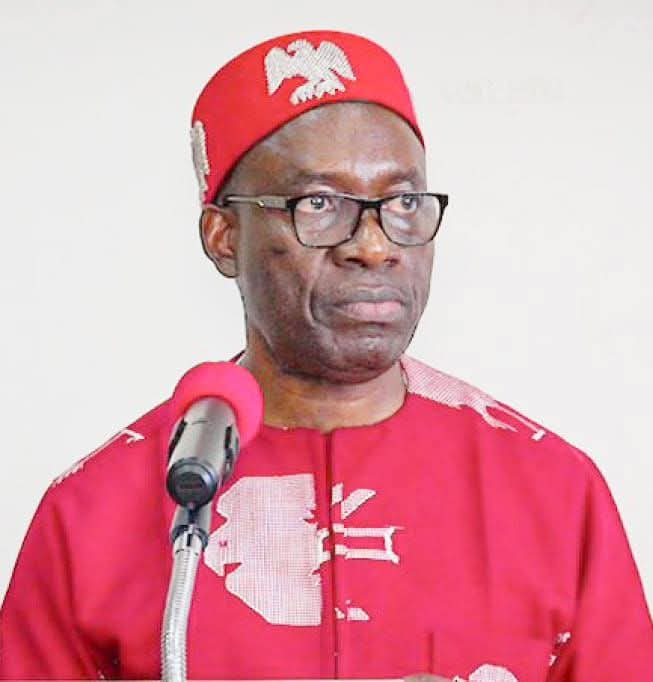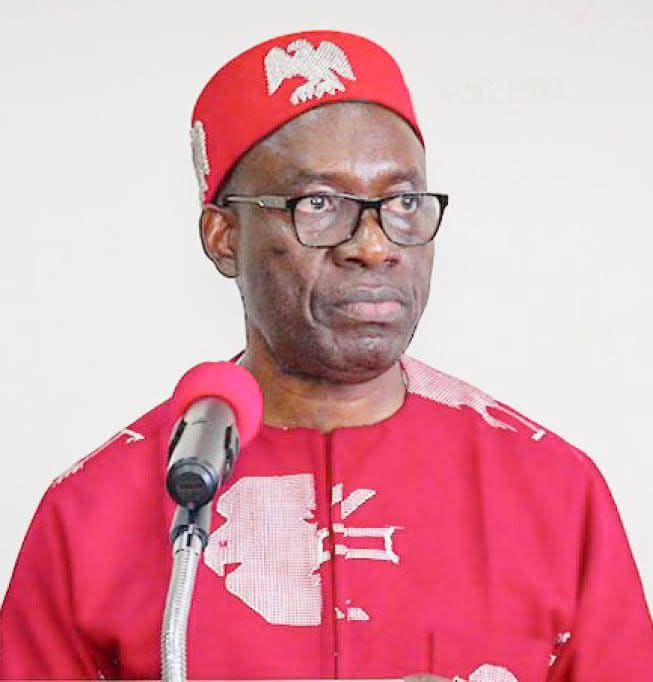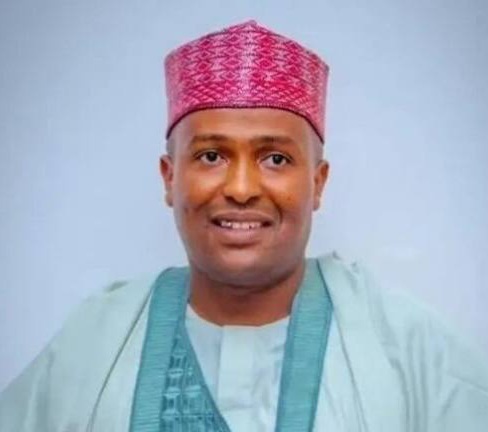News
Give Us Naira Marley’s Transaction History, EFCC Tells Mastercard, Visa
The Economic and Financial Crimes Commission has written Visa Inc. and Mastercard Inc. to furnish it with details on credit cards used by musician, Azeez Fashola, popularly known as Naira Marley.
The commission said the cards recovered from the artiste during his arrest were used for alleged identity theft and credit card fraud.
According to court documents obtained by The PUNCH, the EFCC’s letters to Visa and Mastercard – titled, ‘Investigation Activities’ – were dated May 13, 2019, three days after it arrested Naira Marley.
The letters were signed by the Zonal Head, EFCC, Lagos, Dein Whyte. “The commission is investigating a case of identity theft and electronic cards-related fraud in which the listed card information were recovered during investigation,” EFCC’s letter to Visa and Mastercard partly read.
In the letter to Visa, the commission asked the company to provide information about the last five transactions on each of three Visa cards recovered from Naira Marley.
The first card with number 4921819410257431 was issued by Lloyds Bank Plc and bears the name Timea Fedorne Tatar.
The second card with number 4539782440624281 was issued by Barclays Bank Plc and bears the name Nicole Louise Maylon, while the third card with number 4757147207869807 was issued by Santander UK Plc and bears the name Sharon Broad.
Likewise, in the EFCC’s letter to Mastercard, the commission asked the company to furnish it with information about the last five transactions on a Mastercard card recovered from the musician.
The card with number 5354631405139323 was issued by Prepay Technologies Ltd and bears the name Linh H. Mendez Rojas.
Following his arrest, the anti-graft agency filed an 11-count against Naira Marley.
The charges with suit number FHC/L/178C/19 were filed before a Lagos State High Court.
The artiste was later arraigned before Justice Nicholas Oweibo of the Federal High Court in Ikoyi, Lagos, on May 20, 2019.

News
“I Can Decide To Revoke The Land Allocated To Onitsha Main Market And Build A School On It” — Gov Soludo

Anambra State Governor, Professor Chukwuma Charles Soludo, has sparked fresh controversy after stating that he has the constitutional power to revoke the land allocated to Onitsha Main Market and repurpose it for public use, including building a school. The governor made the remark while addressing market leaders amid the ongoing dispute over the continued Monday sit-at-home observed by traders in the state.
Soludo recently ordered the closure of Onitsha Main Market for one week after traders allegedly complied with sit-at-home directives despite the state government’s ban on such actions. He described the practice as “economic sabotage” and warned that the government would no longer tolerate disruptions to commercial activities in Anambra, one of Nigeria’s major economic hubs.
According to the governor, the Land Use Act empowers the state to revoke land allocations for overriding public interest, adding that affected owners would be compensated and could challenge the compensation in court if dissatisfied. He further warned that shops that remain closed could be sealed, fined, or taken over by the government and reassigned to willing traders.
The decision has generated mixed reactions, with critics accusing the government of punishing ordinary traders and worsening economic hardship, while supporters argue that enforcing a full business week is necessary to restore economic stability and investor confidence in the state. Some lawmakers and stakeholders have also urged the governor to adopt dialogue and caution, citing potential losses and unrest from prolonged market closures.
As tensions continue, the development highlights the broader struggle between government authority, security concerns, and economic survival in the South-East, with Onitsha Main Market—one of West Africa’s largest commercial centres—at the centre of the storm.

News
Kano Assembly Speaker Jibril Falgore Leads 21 Lawmakers Out of NNPP After Governor’s Exit

The Speaker of Kano State House of Assembly, Jibril Ismail Falgore, alongside 21 other legislators, has formally resigned from the New Nigeria People’s Party following Governor Abba Kabir Yusuf’s departure from the political platform.
The mass resignation, announced on Saturday, includes the Deputy Speaker, Muhammad Bello Butu-Butu, Majority Leader Lawan Hussain, and other principal officers of the state legislature, signaling near-total collapse of NNPP structures in the assembly.
According to a statement released by the Chief Press Secretary to the Assembly, Kamaluddeen Sani Shawai, the lawmakers declared total support for Governor Yusuf, who had exited the party just 24 hours earlier alongside eight federal lawmakers and all 44 local government chairmen in the state.
The defecting legislators include Deputy Majority Leader Garba Shehu Fammar, Chief Whip Muddasir Ibrahim Zawachiki, Majority Whip Zakariyya Abdullahi Nuhu, and lawmakers from constituencies across Kano including Ajingi, Albasu, Bagwai/Shanono, Bebeji, Bunkure, Dawakin Kudu, Fagge, Gabasawa, Garko, Gwale and Karaye.
The statement emphasized that the Kano State House of Assembly had verified and authenticated the complete list of defecting lawmakers to properly inform the public and clarify their political position following the governor’s resignation from NNPP.
The legislators reaffirmed their unwavering commitment and loyalty to Governor Yusuf’s administration despite the political realignment, pledging to continue supporting the policies and programmes being implemented across the state.
Governor Yusuf had communicated his decision to leave NNPP in a letter addressed to the party chairman of Diso-Chiranchi Ward in Gwale Local Government Area, effective January 23, 2026, citing persistent internal disputes and legal challenges that have undermined party stability.
In the resignation letter, the governor expressed appreciation to NNPP for the platform and support extended to him since joining in 2022, while acknowledging that deepening internal divisions had created an untenable situation requiring decisive action.
The NNPP Secretary of Diso-Chiranchi Ward, Kabiru Zubairu, acknowledged receipt of the governor’s resignation while commending his achievements in infrastructure development, urban renewal, healthcare delivery, education and economic empowerment during his time in office.
Zubairu admitted the existence of lingering internal challenges within the party and stated that NNPP had no option but to accept the resignation, describing Governor Yusuf as one of the most outstanding governors produced by the political platform.
The wave of defections marks a dramatic political shift in Kano State, where NNPP had dominated since the 2023 elections under the influence of Senator Rabiu Musa Kwankwaso and the Kwankwasiyya movement.
NNPP national officials have condemned the development, labeling it a betrayal of the sacred trust given by Kano voters. National Publicity Secretary Ladipo Johnson dismissed claims of irredeemable party crisis as baseless, while Kwankwaso declared he is not for sale and would not compromise his principles.
News
Singer TIME Drags Georgina Onuoha Over Comment on Davido’s Father’s Reaction to Paternity Saga

Nigerian singer, TIME has publicly called out Nollywood actress Georgina Onuoha following her criticism of Davido’s father, Dr. Adedeji Adeleke, over his reaction to the ongoing paternity controversy involving the Afrobeats superstar.
The drama began after Georgina Onuoha questioned why Davido’s father appeared to defend his son amid allegations that he welcomed a child with a woman identified as Anu Adeleye. In a post shared online, the actress described Davido as “irresponsible,” sparking mixed reactions across social media.
Reacting to her comment, TIME took to X (formerly Twitter) to drag the actress, accusing her of ignoring key details surrounding the case. He referenced statements made by Davido, noting that he had never met the said lady before the first DNA test, and questioned why people were not discussing other individuals mentioned in the saga.
“Madam Georgina, did you hear the part Davina said she’d never met her prior to the first DNA test? Why are y’all not talking about the bank official the girl mentioned to Dr. Sikiru Adeleke?” TIME wrote.
According to reports, Aanu’s mother has been identified as Grace Ayotomide Labinjoh, who has consistently maintained that Davido is her daughter’s biological father despite the singer and his family denying the claim.
TIME’s remarks triggered a fresh wave of debate online, with some social media users backing him for defending Davido’s family, while others accused him of unnecessarily attacking Georgina Onuoha.
As the paternity saga continues to trend, the clash between TIME and Georgina Onuoha has added another layer of controversy, keeping Davido and his family at the center of public discourse.





-

 News2 years ago
News2 years agoHardship: We Plan To Establish A National Commodity Board To Crash Food Prices – VP Shettima
-
News8 years ago
Blog Reader; Samson Osagiede Celebrates Fiancè Benedicta Daniels’s Birthday With Sweet Words
-
Home9 years ago
News Channel claims Donald Trump is an orphan from Pakistan,share alleged childhood photo
-
Home9 years ago
Another $175m Found in Patience Jonathan’s wife’s firm’s Bank Account
-
Home9 years ago
Oil Spillage: House of Reps Member Shares Photos of the Water her Constituents Drink .
-
Home9 years ago
Zara Buhari & Ahmed Indimi’s Wedding Access Card
-

 Sport7 years ago
Sport7 years agoModric, Marta Wins 2018 FIFA Best Player Of The Year Awards ⚽️
-
News8 years ago
The Best Video You’ve Seen Today?
